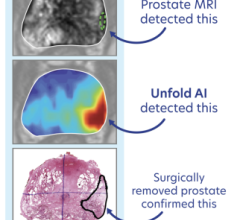News | November 14, 2013
November 14, 2013 — A University of Colorado Cancer Center study, published in the journal Physics in Medicine and Biology, shows that endorectal balloons commonly used during precise radiation treatment for prostate cancer can deform the prostate in a way that could make radiation miss its mark.
“Use of a balloon allows you to stabilize the anatomy,” said Moyed Miften, Ph.D, FAAPM, investigator, University of Colorado Cancer Center and chief physicist, department of radiation oncology, University of Colorado School of Medicine. “But what we show is that imprecision with balloon placement could reduce radiation dose coverage over the intended area.”
Specifically, Miften and colleagues studied the technique known as stereotactic body radiation, in which powerful, precisely-targeted radiation is delivered only to cancerous areas of the prostate with the hope of killing tumor tissue. An endorectal balloon is needed to hold the prostate in place while this high dose is delivered. The study used 71 images of nine patients to show an average endorectal balloon placement error of 0.5 cm in the inferior direction. The placement errors led to less precise radiation targeting and to uneven radiation dose coverage over cancerous areas.
“In radiation oncology, we use a CT (computed tomography) scan to image a patient’s prostate and then plan necessary treatment,” said Miften. “But if during treatment the prostate doesn’t match this planning image, we can deliver an imprecise dose.”
With the use of endorectal balloon, Miften and colleagues found prostates could be slightly pushed or squeezed, resulting in the prostate deforming slightly from its original shape and also sometimes tilting slightly from its original position in the body. These deformations can push parts of the prostate outside the area reached by the planned radiation.
“What we see is that whether or not a clinician chooses to use an endorectal balloon along with stereotactic body radiation for prostate cancer, it’s essential to perform the procedure with image guidance,” said Miften. “The key is acquiring images immediately prior to treatment that ensure the anatomy matches the planning CT.”
For more information: www.iopscience.iop.org


 August 09, 2024
August 09, 2024 








